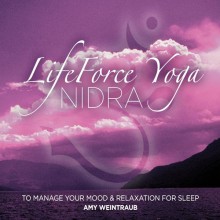Most of us have been traumatized by an event in our lives. That doesn’t mean we suffer from PTSD. Statistics vary, but it is estimated that the same event may induce PTSD in 20 – 40% of those involved, while 60 – 80% recover quickly. The disorder can occur because the traumatizing event might link back to earlier traumas that may or may not be remembered. Or there may be a predisposition due to other factors like depression and anxiety.
The Diagnostic and Statistical Manual of Mental Disorders (DSM) has a list of symptoms. There are three categories of symptoms: re-experiencing, avoidance, and hyperarousal. Wemay have moments of re-experiencing the trauma through:
- Flashbacks—reliving the trauma over and over, including physical symptoms like a racing heart or sweating
- Bad dreams
- Frightening thoughts.
We may avoid situations and numb out to the point of blocking the memory of the event. Here are some of the avoidance symptoms:
- Staying away from places, events, or objects that are reminders of the experience
- Feeling emotionally numb
- Feeling strong guilt, depression, or worry
- Losing interest in activities that were enjoyable in the past
- Having trouble remembering the dangerous event
Hyperarousal symptoms may look like:
- Being easily startled
- Feeling tense or “on edge”
- Having difficulty sleeping, and/or having angry outbursts
There is a lot of good information at the National Institute of Health website that can help you decide if your symptoms warrant treatment.
PTSD becomes more severe as time goes on. The old adage, “Time heals all wounds” does not apply here. If you are suffering, get help. There are many good treatment modalities that can help.
Eye Movement Desensitization and Reprocessing (EMDR), developed by Francine Shapiro has been shown to be very effective in working with trauma.
Emotional Freedom Technique (EFT) is something you can be trained to use yourself. There are also many instructional videos on the web to lead your through the process. Here’s one. http://eft.mercola.com/
My personal favorite therapy for PTSD and other disorders is Internal Family Systems, developed by Richard Schwartz.
Yoga in general, and LifeForce Yoga in particular, can safely and gently help you reclaim your birthright—your own natural state of optimum mental health, reducing feelings of fear, anger, anxiety and depression and the hyper-arousal symptoms of PTSD .
One out of three women and one out of five men have been sexually traumatized. For those of us who have been sexually traumatized, it may not feel safe to live in the body, and we develop protective ways of living, often from the neck up. Yoga can be a gentle way to reclaim our bodies for ourselves. The practices of LifeForce Yoga can help us reclaim full ownership of our bodies. Begin with gentle movement with attention to sensation, breath and sound.
Find a LifeForce Yoga Practitioner in your area or practice with a LifeForce Yoga Video.
Research has shown the benefits of a deep relaxation practice called yoga nidra for reducing symptoms of PTSD. You can practice with my CD, LifeForce Yoga Nidra for Mood Management and you can also find LifeForce Yoga approved yoga nidra CDs and other resources at http://www.irest.us/ and http://yoganidranow.com/.
i love reading your newsletters. you are doing very important work around yoga and healing trauma. i am most grateful…